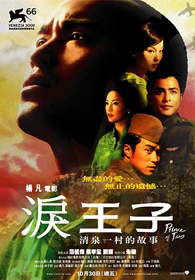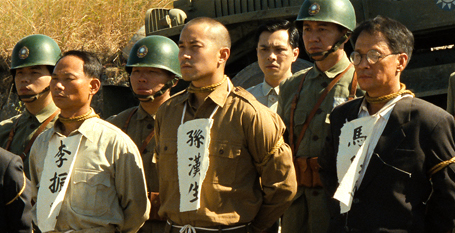
Yonfan is probably best known for his contributions to queer Asian cinema via works like Bishonen and Bugis Street, a result of his continuing interest and empathy for society’s marginalised outsiders in general. In a break with his recent risque material, Prince of Tears represents the director’s application of the lessons he has learnt in the past 15 years, to a much more mainstream subject – the massive communist witch hunt and purges of Taiwan’s White Terror period.
In the five or so years of the White Terror, thousands were accused, imprisoned, and prosecuted as communist spies, often for the flimsiest of reasons. Yonfan’s approach is to filter the paranoia and poisonous political atmosphere by taking us to a rural village near the beaches of central Taiwan, and narrow our attention to a nondescript, squeaky-clean military family, whose eldest daughter narrates the tale (and that of her favourite folk tale, the eponymous “Prince of Tears”) through her childlike eyes and notions.
It would have been far easier to make a political thriller where the repression of Taiwan’s capitalist authoritarian regime was readily apparent. Yonfan shows, however, that there is far greater artistic scope in taking a more subtle approach. The director painstakingly recreates the feel of the early 1950s, and especially the convivial atmosphere and everyday experiences of the military villages, and what it must have felt to grow up with the poverty and hardship of that era.
In accounting the different instances of political repression and their aftermath, Yonfan succeeds in creating sympathetic and affecting portraits of the villagers – from the artist with an easel to the political informant with a limp, from the innocent young lieutenant to the general’s spoilt but progressive wife, there is a sense of bruised humanity amidst the lost of innocence, as well as a genuine fable-like quality to their suffering. And like a folk tale,Yonfan offers no easy answers to the problem of evil – only to highlight the injustice and the beauty of the suffering.
Ultimately, Prince of Tears is about the quality of friendship and its obligations and pitfalls, and the depiction of one of these friendships has led our censorship board to claim an “ambiguous lesbian relationship” in its decision to slap this film with an NC16 rating. Yonfan would be honoured if he knew.

